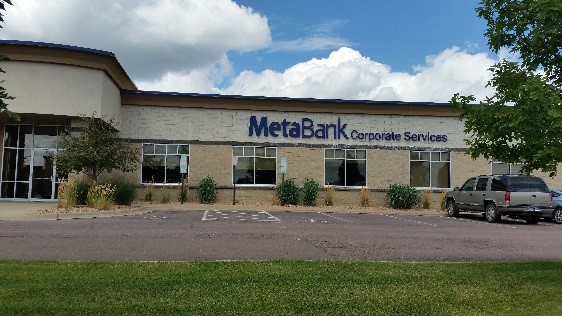Articles by Dan Orlando
eBay to Part Ways With PayPal, Bring Payments in House
February 2, 2018 We all must leave our parents one day and branch out on our own.
We all must leave our parents one day and branch out on our own.
However, this is probably not what PayPal Holdings Inc. had in mind.
The company is surrendering its duties as the primary payment option for its former parent, eBay Inc.
On Wednesday, eBay announced that Adyen, a Dutch company, will take over as the main payments processor when the current deal with PayPal expires in mid-2020. The change will allow the platform to host more of the transaction process in house.
eBay was motivated to make a change by the desire to intermediate the transactions taking place on its site and to allow buyers and sellers to complete their business within one website (eBay).
“As a leading global commerce company, eBay believes that payments intermediation is strategically important to improve the buyer and seller experience on its platform and will enable the company to further innovate on behalf of its customers,” the company said in its statement. “In a rapidly changing and competitive e-commerce landscape, shoppers expect to be able to both shop and checkout on the site on which they transact. As eBay intermediates payments, shoppers will be able to complete their purchases within eBay.”
However, this will not be a total break between the two companies that were once attached at the hip. PayPal will remain an option for eBay users until the summer of 2023.
PayPal’s stock took a nosedive following the news. As of 9 a.m. on Friday in the company’s HQ of Palo Alto, CA. the stock had slid from $85.32 on Wednesday morning, down to $77.25 with brief rebounds along the way.
While the move may not have done any favors for PayPal’s stock, eBay is optimistic that it will be a boon for merchants that use the platform to sell their wares.
According to the release, most sellers can expect their costs of payments processing to be reduced after completing the transition. They should also enjoy a “simplified pricing structure and more predictable access to their funds.”
Liberty Lending Partners With MetaBank
January 28, 2018
Online lender, Liberty Lending has partnered with MetaBank, a wholly-owned subsidiary of Meta Financial Group, Inc., the latter announced on Thursday.
During the three-year agreement, the federally chartered MetaBank will provide personal loans to Liberty Lending customers. Both entities will market the initiative.
According to the release, Meta expects to originate between $500 million and $1 billion in personal loans.
Eligible loans will be closed-end installment products ranging from $3,500 to $45,000 with durations lasting between 13 and 60 months.
“We are excited to partner with a respected and growing brand in online lending, and look forward to working together to deliver best in class loan products to consumers,” said Brent Turner, EVP and head of consumer lending at Meta, via release. “Furthermore, leveraging the underwriting expertise and consumer credit experience of the SCS team provides us with great resources to accomplish our objectives in consumer credit.”
“Liberty Lending’s mission is to provide innovative borrowing solutions to deserving customers. The partnership will enable Liberty Lending to further deliver on its mission to customers by leveraging Meta’s wealth of resources and expertise,” said Bill Yialamas, CFO of Liberty Lending.
Meta Financial Group is based in Sioux Falls, South Dakota while Liberty Lending is headquartered in New York, New York.
StrategyCorps: The ‘Amazon Prime Effect’ Could Significantly Alter Personal Banking
January 26, 2018 FinTech and mobile content has done more than provide exposure to alternative lenders and financing avenues.
FinTech and mobile content has done more than provide exposure to alternative lenders and financing avenues.
“It’s rewiring the way that we think,” Dave DeFazio, a partner at StrategyCorps told deBanked while discussing mobile devices. StrategyCorps helps financial institutions enhance their checking account offerings.
“We’re addicted to our phones. We’re using them more than ever. The winners in whatever category of business will be the ones that connect better with their customer’s mobile lifestyles and behaviors.”
DeFazio believes that even the flagship personal banking product, the checking account, could be facing a significant makeover in the not-so-distant future.
“There are companies that are kind of nibbling away at the strangle hold on the definition of the traditional account,” said DeFazio. He added that while the public tends to define their banking relationships now by which bank holds their personal checking account, things could be different “down the road.”
Citing a white paper that StrategyCorps commissioned, DeFazio also pointed to deposit displacement as a potential cause of alarm for traditional free checking.
Easy mobile access to P2P platforms such as Venmo, make it more convenient for traditional banking users to opt to store their funds elsewhere.
Another company “nibbling away” at funds that would otherwise be deposited in a traditional checking account is Amazon.
According to Reuters, the e-commerce giant leant more than $1 billion to over 20,000 small businesses operating via Amazon Marketplace between June of 2016 and 2017.
The loans range from $1,000 to $750,000.
The results from this venture could prompt Amazon to purchase a small or mid-sized bank of its very own in the next 12 months.
“This may either be a tactical move or a broad strategic jump into banking, as Amazon seeks more stickiness with consumers and small businesses in consumer lending such as auto loans, credit cards and home mortgages,” CFRA bank analyst, Ken Leon, told Bloomberg in December.
DeFazio says that as consumers grow accustomed to whatever unique perks and advantages that Amazon and other platforms bring to the table for products such as a personal checking account, it could force traditional institutions to work much harder to stay attractive.
Sorodo’s Co-Founder: Alternative Financing Options ‘Unknown’ Amongst the U.K.’s Small Business Community
January 25, 2018Are small businesses across the pond aware of their alternative financing options? Manchester’s Sorodo Limited, a merchant cash advance company, feels that the word has far from spread.
“We still have some way to go, as the product is still fairly unknown to the wider business community,” co-founder Rich Wilcock said via release earlier this month while discussing merchant cash advance alongside other non-traditional avenues. “We spoke to a lot of business owners in 2012 and 2013, and they were understandably frustrated by their situation. Many who were declined for traditional forms of finance by their banks didn’t look any further, which is why it’s so important we get the message out about alternative funding options, such as peer-to-peer lending, cash advances, crowdfunding, unsecured borrowing and so on.”
Wilcock labeled awareness of the merchant cash advance option and other alternatives at the dawn of 2018 as “disappointingly low.”
Typical Sorodo Limited customers include owners of hotels, restaurants, cafes, pubs, clubs, bars, independent shops (including e-commerce stores), convenience stores, beauty salons and garages.
“In 2014, the average independent retailer was struggling to stay open, let alone turn a profit,” said Wilcock. “Many shops, hotels, restaurants and leisure outlets closed down, but we knew this product had the ability to not only keep businesses trading but also to help them grow.”
After promoting the lending alternative and seeing growth in Sorodo’s business, Wilcock believes that there is still significant amount of campaigning left to do. Thus, Sorodo Limited is expanding it’s offerings with a new platform called Capalona.
The newcomer is designed to help U.K. business owners find alternative solutions besides merchant cash advance that may serve their individual needs better.
“The term ‘alternative business finance’ covers a variety of new funding models that allow businesses to access funds that are not readily offered by traditional lenders,” said Wilcock. “These include products such as asset-based lending, invoice finance, venture capital, pension-led funding and many more.”
Capalona, which is currently up and running, is also based in Manchester.
YieldStreet Gets $113M Closer to ‘Changing The Way Wealth is Created’
January 24, 2018New York’s YieldStreet, an alternative investment platform, closed a $113 million financing round earlier this month. The company announced that the round drew $12.8 million in Series A equity financing from the team of Greycroft and Raine Ventures, as well as a $100 million revolving credit facility from an unspecified entity.
Via release, YieldStreet said that the equity will enable it to “accelerate the transformation of wealth creation by investing in further product innovation and growing its loyal community of investors.”
CEO Milind Mehere expanded on this sentiment in the statement. “With the ultimate mission of ‘prosperity for all,’ YieldStreet is making it possible for individual investors to have wealth creation opportunities similar to the top 2%,” he said. “This funding will enable us to bolster our machine learning and data analytics capability for predictive underwriting models, launch new products for non-accredited investors and further fuel our growth towards our mission. I am excited to work with this strong syndicate of investors who understand this opportunity.”
The deal also includes the arrival of Alan Patricof, co-founder of Greycroft, to the YieldStreet advisory board.
“Before YieldStreet, retail investors never had access to institutional quality alternative products,” Patricof said. “We believe that YieldStreet’s leadership team is unmatched and well positioned to deliver on its mission to transform investing.”
Prior to this round, YieldStreet had only raised $3.7 million in equity capital as it focused on diversified alternative asset classes across real estate bridge loans, litigation finance, and commercial finance.
New RealtyMogul CIO Praises the Company’s Avoidance of Land, Hotel and Development Investments
January 23, 2018Los Angeles’ RealtyMogul promoted Chris Fraley from interim chief investment officer to permanent CIO, earlier this month. After the announcement, Fraley told commercial real estate publication, Bisnow, that the company’s “fairly conservative approach” has put it in an optimal position at this point in the current real estate cycle.
“There is certainly a feeling that we are at the top of the cycle given this is one of the longest economic expansions in the past century, from a time perspective,” he told Bisnow. “It is a relief that RealtyMogul has taken a fairly conservative approach by focusing mainly on income investments and light value-add and avoiding traditionally riskier assets like land, hotels and development.”
In 2017, RealtyMogul eclipsed several internal records and finalized transactions holding $566 million worth of capitalization.
Fraley believes that the company can “significantly increase” that number this year.
The Yale grad joined the company in June, bringing over 20 years of experience to the role. Former posts include a tenure as partner at Rockwood Capital, which preceeded the launch of his own real estate investment company, Evolve.
“Being on the operator side of the business really helped me appreciate all the hard work that goes into managing a real estate project,” Fraley said while discussing Evolve with Bisnow. “It has certainly given me greater insight on how to evaluate a potential operating partner as an investor.”
Fraley also shared that when he initially joined the company in an interim capacity in June, he did not intend to stay on full-time.
He gave partial credit for his decision to become a permanent member of the team to the company’s ability to merge research and data with technology.
Alternative Financier, White Oak Global Advisors, Turns to CIT for Own Unique Needs
January 23, 2018White Oak Global Advisors, an alternative financier and creditor in its own right has turned to CIT Group Inc. in order to organize a $422 million secured loan for its aviation division, the companies announced last week.
White Oak Commercial Aviation, LP, will use the funds to purchase 20 on-lease wide body aircraft engines from GE Capital Aviation Services. Terms of the transaction were not disclosed.
“CIT’s ADG and Capital Markets teams were razor-focused on delivering a financing structure that would work for us while also meeting lender requirements,” said Andre Hakkak, CEO and co-founder of White Oak via release. “This transaction provides us a foundation to strengthen and grow our focus on providing financing solutions for aviation companies.”
John Heskin, managing director and group head for CIT’s Aerospace, Defense & Government Finance (ADG) team led the transaction with senior investment professionals from White Oak.
“We are pleased we could leverage our deep capital markets expertise to provide a creative solution for this senior secured loan syndication,” said Heskin. “Our understanding of the aerospace industry encompasses whole aircraft as well as parts and engines. This enables us to support the entire aerospace ecosystem from lessors and investors to distributors and manufacturers.”
White Oak currently has over $7 billion of capital invested in over 500 companies. The company provides small and medium size enterprises with term loans, asset-based lending, invoice factoring, trade finance, equipment financing and treasury management. It was launched in 2007.
Lending Disruptor, Rocket Mortgage, Announces First eSports Sponsorship
January 22, 2018Rocket Mortgage has thrown its hat into the burgeoning eSports ring, Quicken Loans, its parent company, announced on Friday. The brand has entered into a sponsorship agreement with the 100 Thieves’ League of Legends division.
Citing a synergy between the end-to-end online and on-demand mortgage product and the “disruptive” world of eSports gaming, Quicken Loans CEO, Jay Farner said via release that Rocket Mortgage is “aligning (its) brand with a subculture that embodies what we stand for as a company – industry disrupting and groundbreaking innovation.”
The deal includes the naming rights to The Rocket Mortgage Team House in Venice, California, logo placement on the 100 Thieves team jerseys and integration into the team’s social media presence.
“The Rocket Mortgage Team House gives us the chance to practice constantly, call team meetings in minutes and build synergy both in and outside of gaming as a team,” said Neil “Pr0lly” Hammad, head coach of 100 Thieves, veteran LoL player and most recently the head coach at H2k-Gaming where he was awarded the title for the EU LCS’s Coach of the Split on three separate occasions. “This is crucial for maintaining a competitive environment, and by handing us the keys to this team house, Rocket Mortgage is helping us prepare to destroy the NA LCS.”
The 100 Thieves eSports team as founded in 2016. In addition to League of Legends, the club has also fielded a team for the popular video game title, Call of Duty.
As for Rocket’s parent, Quicken Loans, the Detroit-based lender is the second largest retail home mortgage lender on U.S. soil. The company closed upwards of $400 billion of mortgage volume across the country between 2013 and 2017.






























